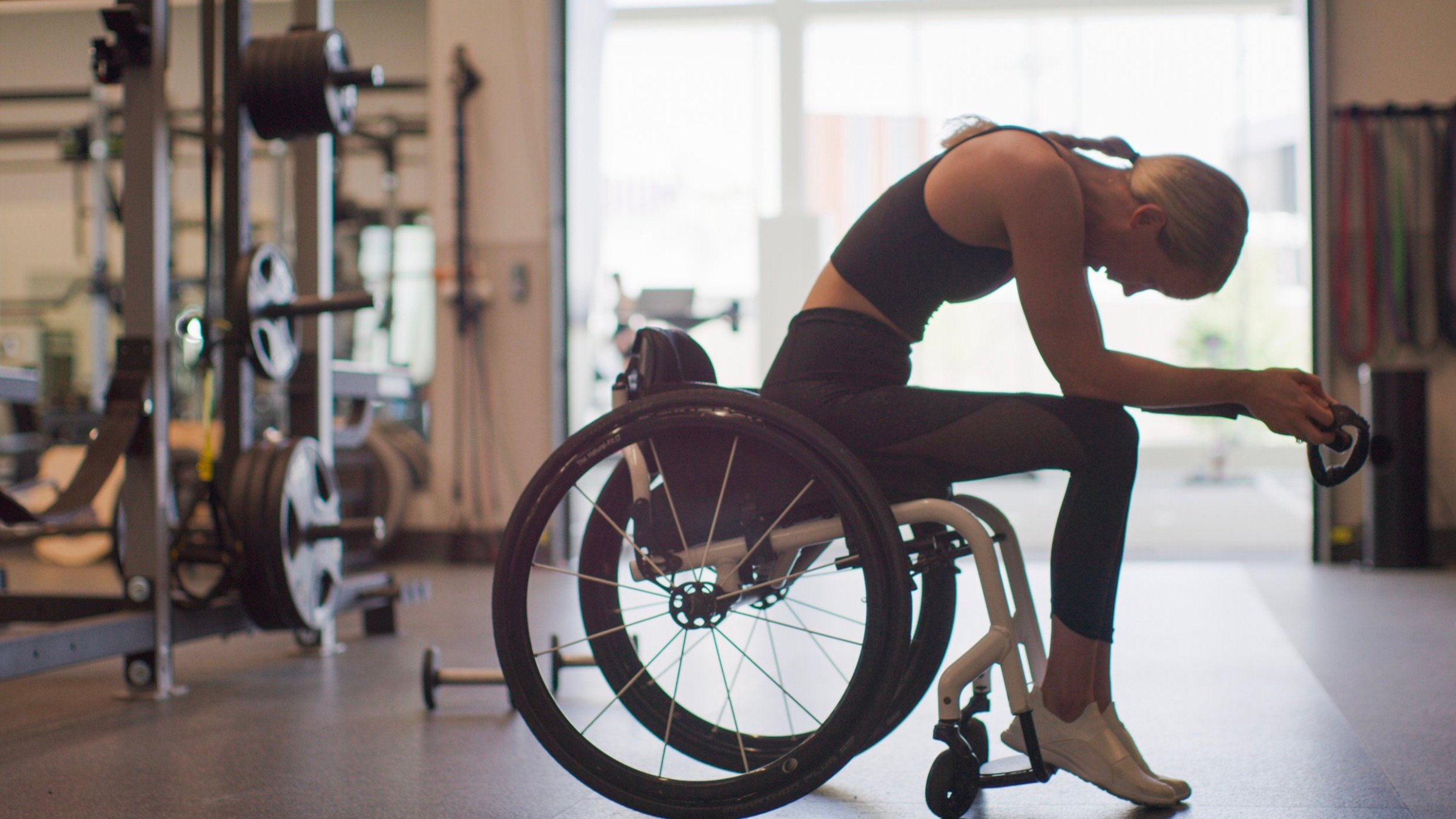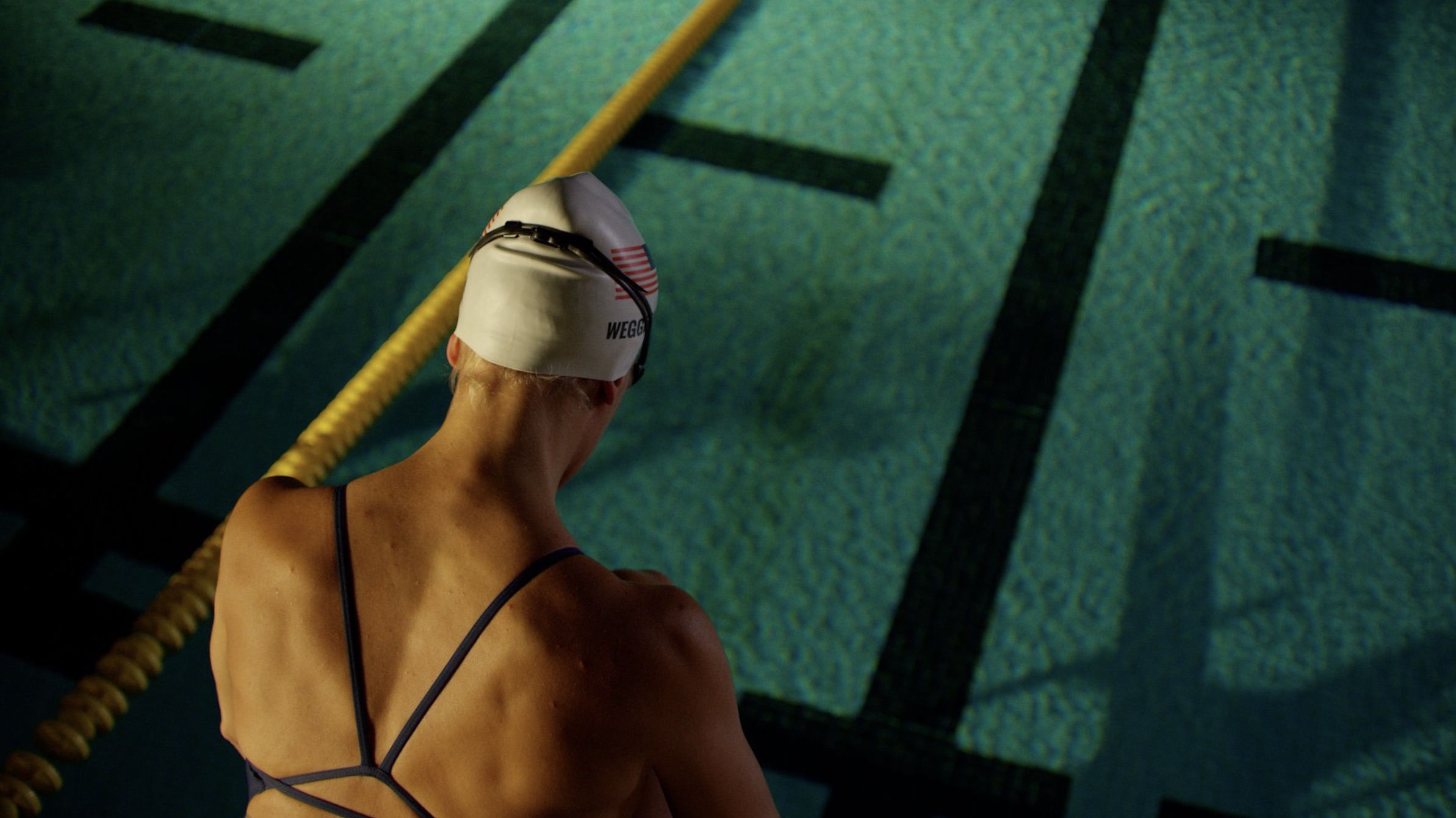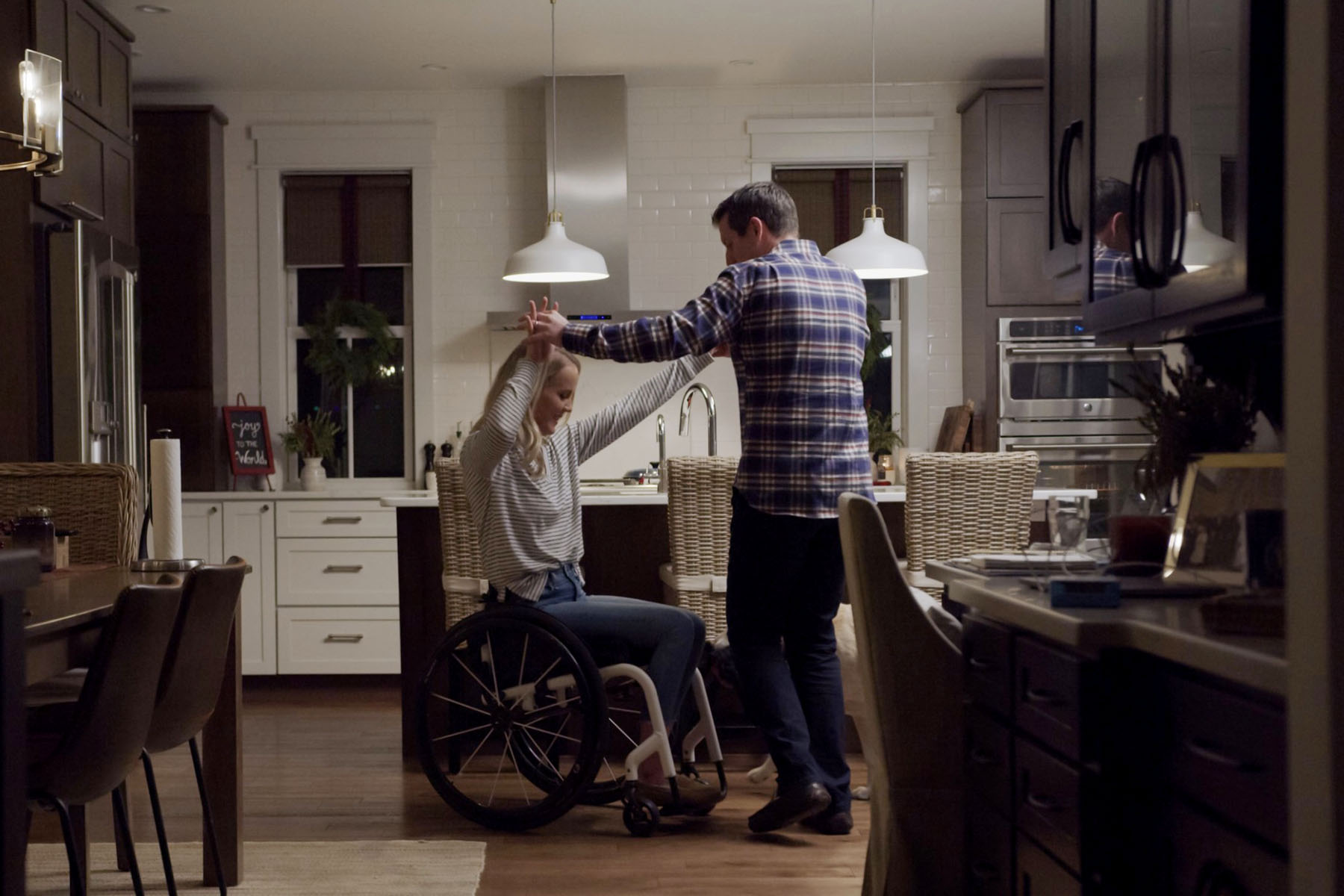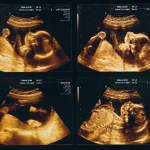Member support made it possible for us to write this series. Donate to our nonprofit newsroom today to support independent journalism that represents you.
This year will be the first time Paralympic swimmer and five-time medalist Mallory Weggemann competes in the games as a mother. Her daughter, Charlotte, and her husband, Jay Snyder, will be cheering for her from the stands. A new documentary, “Watershed,” charts the difficult journey she and Snyder undertook to bring Charlotte into the world.
“Mallory is racing to show our daughter that we never stopped dreaming. Years ago, Mallory said that she wanted to race and compete at the Paris Games with Charlotte in the stands, and here she is doing just that,” Snyder told The 19th.
“Watershed,” directed by Weggemann and Snyder and released last month, is significant both for its portrayal of a disabled mother’s experience with IVF and for its discussion of male factor infertility. Both topics are rarely discussed in public.
Around 9 percent of men and women are estimated to have infertility, but it is unclear how many of those are also disabled. There has been polling and research on the use of assisted reproductive technologies along sex, race, age, income and even partisan lines, but not by disability. In vitro fertilization, or IVF, is the most common assisted reproductive technology and makes up over 99 percent of treatments. IVF is one of the only options available to people experiencing male factor infertility who might want biological children.
Weggemann became paralyzed at 18 due to a complication from an epidural, or injection into her spine, to treat back pain. To cope, she threw herself into swimming, eventually qualifying for her first Paralympic Games in 2012.

“I won a gold and a bronze, but the journey was carved by a lot of pain. That version of me didn’t know what living life with a disability would look like. I didn’t know what my future would be. Four games later, I’m now at a point where [my life is] no longer carved by pain. Swimming is the vehicle by which I get to express love and bring light into my life, and I get to do it with those that I love most in this world,” Weggemann told The 19th.
Weggemann and Snyder always knew that they wanted to have children together and that they would have to use IVF. This was not due to Weggemann’s paralysis. Snyder experienced an injury as a teenager and was told he may never be able to have biological children.
“Around us, everybody had this immediate thought, ‘Oh, I’m so sorry you can’t have kids because of Mallory’s paralysis.’ It struck me, because they just make this assumption. It’s a lack of understanding in our world that somebody with paralysis can have kids or bear a child,” Snyder said.
Part of Snyder’s motivation to make “Watershed” with Weggemann was a lack of representation of male factor infertility, which makes up about half of all infertility cases. While the experience was, in some ways, deeply private for Weggemann and Snyder, Snyder felt obligated to share his story.
“I never saw any men really talking about it. When you Google male factor infertility, there’s not a lot out there,” Snyder said.
Weggemann’s motivation was to show that disabled women can do everything non-disabled women can, despite assumptions.
“One of the most triggering ones is that ‘this’ isn’t for people like you. Life, marriage, relationships, a family, a career, travel, experiences. … But the irony is I’m not just living. I’m not just trying to survive. I’ve done more on four wheels than I ever could have imagined possible on two feet,” Weggemann said in the documentary.
Weggemann’s doctors through the IVF process were largely understanding and empathetic, but much of the clinic equipment wasn’t accessible. During one of her earliest appointments, she and the clinic staff realized that she would not be able to get up onto the exam table in a standard way.
“There was a little bit of an awkward moment. I didn’t realize what the awkward moment was about at first. Then I realized it was about them seeing me in a chair, thinking ‘Oh, how are we going to do this?’” Weggemann said.
She said she feels very fortunate that her IVF team was receptive to suggestions, and as a result, their office will be more accessible for future prospective parents in wheelchairs.
“The minute [the team] realized there was a hurdle, they jumped to figure out a solution, and they ultimately created a solution for the long term. They now have accessible tables at their clinic,” she said.
When Weggemann and Snyder started making the documentary in 2020, they did not anticipate that IVF would become a political issue. Earlier this year, an Alabama court ended IVF access in the state; while it has been partially restored, it sparked a conversation about legal and legislative threats to the procedure, especially in the wake of an end to federal abortion rights. In June, Senate Republicans blocked efforts to guarantee access to IVF nationwide.
“I look at Charlotte and I think about the fact that we live in the United States, where her existence is literally up for discussion right now. It is heart wrenching. I look at everything we went through to bring her into this world, everything we fought through for her to be here. It infuriates me that there are people that say that she should not exist because of how she came into the world. There’s nothing about that that’s right,” Weggemann said.
Snyder and Weggemann plan to do political advocacy around access to IVF once the Paralympics are over.
“We’re trying to get down to D.C. a couple more times to spend some time on Capitol Hill,” Snyder said.
Meanwhile, the entire family is excited to have Charlotte watch her mother swim in Paris. Weggemann will be competing in three events: the women’s 200-meter medley, 50-meter freestyle and 50-meter butterfly. Charlotte is only 17 months old, but her parents say she understands the race and has watched her mother compete.

“You can see [Charlotte] starting to understand that her mom swims. She points at the water and goes, ‘mama, mama!’ She can see [Weggemann] swimming, and [Charlotte] and I are just going nuts in the stands,” Snyder said.
Despite being one of the older competitors at 35 and pregnant for much of her training, Weggemann is optimistic about her chances at medaling in Paris. But her outlook has grown along with her family.
“Anything that happens in that pool, it’s a lifelong dream. At the same time, it doesn’t really matter, because I’m still Charlotte’s mom. I know that girly loves me all the same,” she said.
“Watershed” is currently available on NBC’s streaming platform Peacock and on Delta Airlines’ in-flight movie service. The Paralympics are also airing in their entirety on Peacock through September 8. More limited coverage and highlights will also be available on USA Network and NBC.






